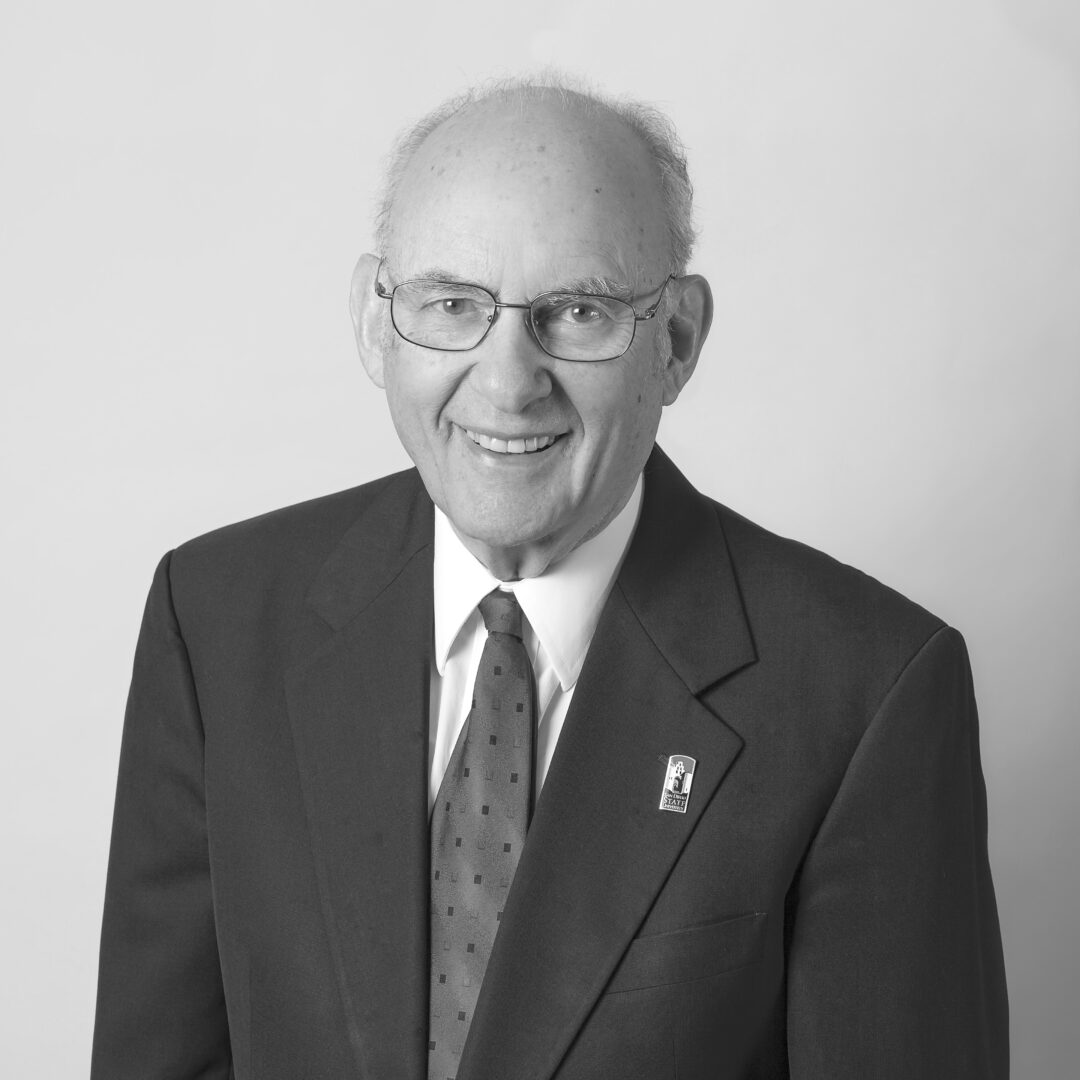Jerome M. Sattler’s ongoing career is highlighted by an innovative textbook, countless publications and philanthropy

Psychology Professor Emeritus Jerome M. Sattler
At 93 years old, Psychology Professor Emeritus Jerome M. Sattler continues to publish books, win awards and serve the San Diego State University community and beyond.
The son of Polish immigrants who came to the U.S. following World War I, Sattler’s life and career can best be defined by one of his favorite Yiddish words: Chutzpah.
“My parents didn’t know English and they only had a high school education,” he said. “When I look back at it, we were one paycheck away from being homeless.”
Growing up in New York City, Sattler played games like stickball and handball with the neighborhood kids, and fell in love with literature and the arts. His older brother introduced him to jazz and he would buy inexpensive tickets to concerts and plays in the last two rows of Carnegie Hall or St. James Theatre.
“There was never any money and it was a struggle but I never knew it,” he said. “I was just a kid playing in the streets of the Bronx.”
Sattler put himself through school and earned a master’s degree in psychology at the University of Kansas. He had to delay the rest of his graduate studies after being drafted into the Army, where he served as a clinical psychology technician in a mental health clinic.
After completing his military service, he earned his doctorate degree, interning at a VA hospital during this time. There, he began learning essential skills in assessment, a psychological practice that uses tests to gather information about a person which can be used in many different ways, such as diagnosing autism and other neurodevelopmental disorders.
Book Beginnings
Post-graduation, he delved deeper into assessment, teaching classes on the subject and working in a child guidance clinic at Kansas State College (today Kansas State University). Observations of his students coupled with his own experiences pointed out a glaring need for consolidated instructions on how to administer and interpret distinct types of psychological tests.
“When I was a student, I had to go to many, many different sources,” he said. “And there were general assessment and testing books but none specifically for children with disabilities or for learning the major intelligence (IQ) tests.”
Although he didn’t know much about the publishing process, he got to work, conducted research and penned the first edition of “Assessment of Children: Cognitive Foundations and Applications.” But when he brought the idea to publishers, none were interested.
“They all said it’s too small a market, that there are not enough graduate students in clinical child or school psychology,” he said. “But I told them we need this book.”
Heading West and Finding Success
Sattler made his way west in 1965, taking a job teaching at SDSU and by 1970, he had finally found an editor who recognized the importance of his assessment book. Then in 1975, the monumental first iteration of the Individuals with Disabilities Education Act (IDEA) was passed, providing federal legislation aimed at ensuring children with disabilities had access to education.
“I think I was blessed at the time the book came out,” he said. “After the federal government passed the law, thousands of school psychologists were needed to test those children who showed some kind of disability and my book was right there to instruct them on how to do that.”
Sattler has gone on to publish expanded editions of the successful textbook which is used by over 100 universities nationwide and internationally, his latest, seventh edition released earlier this year. Meanwhile, he has authored 15 other assessment textbooks, published more than 100 journal articles and delivered nearly 300 speeches, workshops and webinars over his career.
“I just want to keep moving and covering new material as best I can,” he said. “I joke, ‘Poor Jewish first-generation immigrant kid from the Bronx, New York, made it!’ I don’t know how I made it but I made it.”
Giving Back, Getting Rewarded
Sattler also recognizes the need to pay forward the financial assistance he received throughout his schooling by supporting students who, like him, grew up with limited resources. In addition to giving back within the community, he has started several endowments at SDSU.
“The donations come from a deep appreciation of everything San Diego State has done for me,” he said. “I want to pay back for what was given to me.”
The cherry on top of Sattler’s 70-year career in clinical and school psychology is winning the 2024 Distinguished Service to the Profession of Psychology Award by the American Board of Professional Psychology (ABPP). The accolade recognizes a certified specialist for their exceptional work and impact on the field of psychology.
“The support from the national organization is very rewarding,” he said. “It’s just nice to know that the profession has recognized not only my individual book and research contributions, but my life’s work.”
Although Sattler officially retired from SDSU in 1994, he has continued working as an adjunct professor, teaching courses and conducting workshops and webinars, all while working on textbooks that cover a broad, constantly changing field.
“In my work as a textbook writer, I’m essentially a gold miner sifting for gold. My life is gathering information, sifting it, organizing it, writing it and rewriting it,” he said. “So it’s a challenging task and I think it’s literally kept me alive.”
While Sattler says he’s no longer “the spry 88 year old” who was traveling all over the world to give workshops, his role in enriching the psychology community goes on.